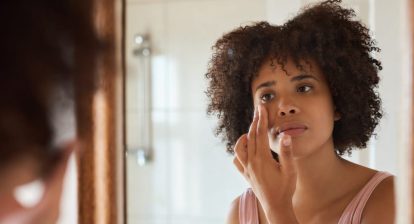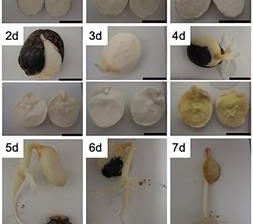At-home remedies for hair growth can both be the stuff of legend (proven and passed down; like rosemary oil) or myth. Using castor oil for hair growth falls into the latter camp. And though the DIY hair treatment remedy won’t necessarily help with thinning hair, hair loss, or overall growth, pure castor oil may come with some other hair health benefits—when used correctly, of course.
“Castor oil is a type of vegetable oil that is extracted from the castor oil plant, Ricinus communis,” says board-certified dermatologist Naana Boakye, MD. The oil is made from castor beans, and has long been used to make soap, lubricating products, and coatings. “It’s rich in ricinoleic acid, a monosaturated fatty acid, which helps the oil act as an occlusive moisturizer.” Castor oil is thick and often pale yellow in hue and, according to Boakye, contains antimicrobial properties due to the ricin and ricinoleic acid from fungus and other microbes.
One thing castor oil won’t do? Help your hair grow. Read on to learn what castor oil can do for your lengths—and why you should extra care while using it regardless of hair type.
What are the benefits of castor oil for hair?
“There is no scientific evidence to support that castor oil affects hair health,” says Boakye. “However, because castor oil has rich moisturizing properties, it can help lubricate the hair shaft, therefore decreasing the chance of breakage and possibly improving hair luster.”
As noted by Dr. Boakye, castor oil is an occlusive moisturizer. Occlusive moisturizers help retain hydration by forming a protective barrier of sorts, keeping existing moisture in, but also preventing additional moisturizing benefits from penetrating. This quality is likely why castor oil is an age-old remedy for both dry hair, dry scalp, and even dandruff, that likely aided by the ricinoleic acid, which is said to calm inflammation.
The long and short of it? “Castor oil does not grow hair,” says Boakye. “It only assists in moisture retention.” Always opt for cold-pressed castor oil, which is made minus heat or harsh chemicals, and use sparingly for nourishing dry, damaged hair.
The downsides of castor oil
Both Boakye and New York-based trichologist Penny James of the Penny James Trichology Center warn of acute hair felting, a sudden matting that can occur when using castor oil. “Hair felting is when the hair suddenly becomes matted and tangled, and it usually can only be treated by removing the hair completely,” says Boakye. That means cutting it out.





